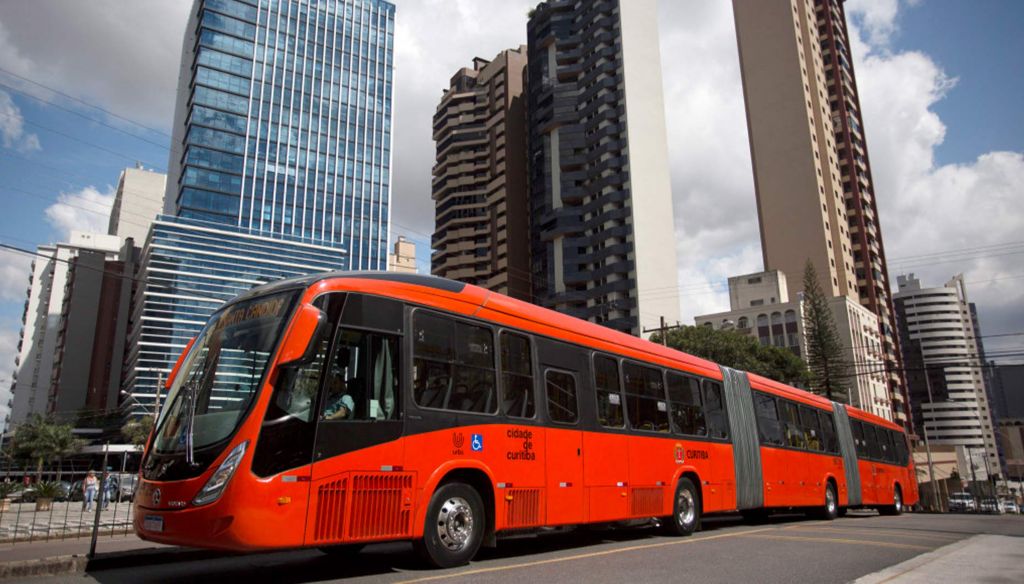Volvo Buses continues to develop Curitiba’s BRT system with the delivery of 40 new buses


“We are back to having a leading position in bi-articulated buses in the city and in the market. In addition, we have significant deliveries in the entire HD vehicle segment, which also includes articulated and conventional buses,” states Fabiano Todeschini, President of Volvo Buses Latin America.
Curitiba is regarded as the origin of BRT (Bus Rapid Transit), the concept that deploys buses travelling in exclusive lanes or corridors, with the bus floor at the same level as the bus stop platform to aid boarding, and pre-paid fares to promote a faster and more fluid passenger transportation experience. Developed in the city in the 1970s, the system served as an inspiration for a number of other metropolitan areas around the world, in particular in Latin America.
At the start of the previous decade, however, many factors were constraining fleet renewals, and this trend has now been reversed in recent years. “As partners since the beginning of BRT, we are very pleased that the city is once again starting to invest in new buses, keeping the focus on safety and quality,” explains Paulo Arabian, Bus Commercial Director for Volvo in Brazil.
Currently, Curitiba’s mass transit system carries 1.23 million passengers on more than 14,100 trips a day. Operating along 254 routes, the city’s 1250 buses cover around 273,000 kilometres.
Curitiba’s new Volvos are of the B340M bi-articulated, B340M articulated and conventional models. They come with a heavy-duty specification including electronic disc brakes and ABS, electronic acceleration control and an automatic air suspension levelling system, among other features.
“We are very proud to have created the world’s first commercially viable bi-articulated bus, helping in the consolidation of BRT first in Curitiba and later in other metropolitan areas,” states Fabiano Todeschini.
Volvo heavy-duty buses are also prepared for installation of Automatic Speed Control, a system that uses GPS connectivity to automatically limit bus speed in critical areas such as terminals or near schools and hospitals. In 2018 when this new technology was implemented, it made a significant contribution to road safety, cutting the number of collisions by 50% on the north axis of the BRT network in the capital of Paraná, compared with the preceding year.
Gothenburg, June 2, 2020.
For more information, please contact.
Marco Greiffo, Press Officer – Volvo Group Latin America, Tel: +55 41 3317-7830 / 3317-8736 or email: marco.greiffo@volvo.com or Joakim Kenndal, Head of Media Relations, Volvo Buses +46 739 02 51 50 or email: joakim.kenndal@volvo.com.